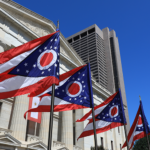Imagine your hard-earned tax dollars being used to fund labor disputes in which you have no part. House Bill 1893 threatens just that, turning a well-intentioned support system for unemployed workers into a financial incentive for strikes. Labor unions, emboldened by their influence over the lawmakers they’ve put into office, devised a plan to force employers and taxpayers to act against their own interests.
The Burden on Taxpayers
HB 1893 sought to provide unemployment benefits to striking workers, effectively placing an undue financial burden on governments, employers, and ultimately the taxpayers. The state’s unemployment insurance fund, paid for directly by employers and indirectly by consumers, is not designed to support individuals who voluntarily choose not to work. Extending benefits to striking workers will invariably lead to increased unemployment insurance taxes and higher prices as businesses pass along costs to consumers.
After the bill passed the House and moved to the Senate for consideration, the Association of Washington Cities highlighted another concerning aspect of HB 1893. In Washington state, strikes by public employees are illegal, though there are no automatic penalties. As originally proposed in the House, HB 1893 provided that striking workers would only be eligible for benefits if their strike was legal.
However, a proposed amendment would have stipulated that public employee strikers could only lose benefits if a court enters a final judgment holding the strike to be unlawful. However, final court rulings in public employee strike litigation are exceptionally rare, compelling government employers to undertake additional legal steps and expense to avoid disbursing unemployment benefits to illegal strikers. This takes time and money during which strikers would still get unemployment benefits. Also, the proposed amendment would have only stopped benefits from the date of the final judgment, not before. Thus, strikers could retain benefits obtained during the legal proceedings, and public employers could still bear the cost even if the strike is subsequently deemed unlawful.
Undermining Union Responsibility
Traditionally, the responsibility of supporting striking workers has fallen on union operated strike funds built through member contributions and intended to provide financial support during labor disputes. By shifting this responsibility to the state unemployment system, HB 1893 undermines unions’ roles and encourages a dependency on taxpayer-funded safety nets, rather than self-reliance and collective responsibility within the union community.
Amplifying the Teacher Strike Dilemma
The debate around HB 1893 also casts a spotlight on the contentious issue of illegal teacher strikes. By potentially extending unemployment benefits to striking workers, this legislation could embolden actions like those seen in the Kent School District, where teacher strikes disrupted the education of thousands of students. Such a precedent not only strains the taxpayer but also undermines the legal framework that deems such strikes illegal in Washington State. It’s imperative that we consider the broader ramifications of empowering unions in ways that could lead to more frequent and legally ambiguous strikes, further burdening Washington’s educational system and the taxpayers who support it.
Incentivizing Strikes and Disrupting the Economy
The availability of unemployment benefits to striking workers would incentivize more frequent and prolonged strikes, disrupting businesses and the economy. This exerts additional strain on the unemployment insurance system, potentially jeopardizing its sustainability for workers who are involuntarily unemployed.
Equity and Collective Bargaining
The availability of unemployment benefits during a strike would alter the dynamics of negotiations, potentially incentivizing more aggressive demands from unions and prolonged labor disputes. This shift in bargaining power would have far-reaching implications for the business environment and economic stability of Washington state.
Conclusion
Fortunately, Washington dodged the bullet this year as HB 1893 failed to make an important legislative deadline last Friday, but bad ideas have a way of resurfacing, especially when they are a priority of entrenched special interests.
We cannot allow our state lawmakers to pass a bill that will not only incentivize but also reward public employees with taxpayer funded illegal labor strikes.










